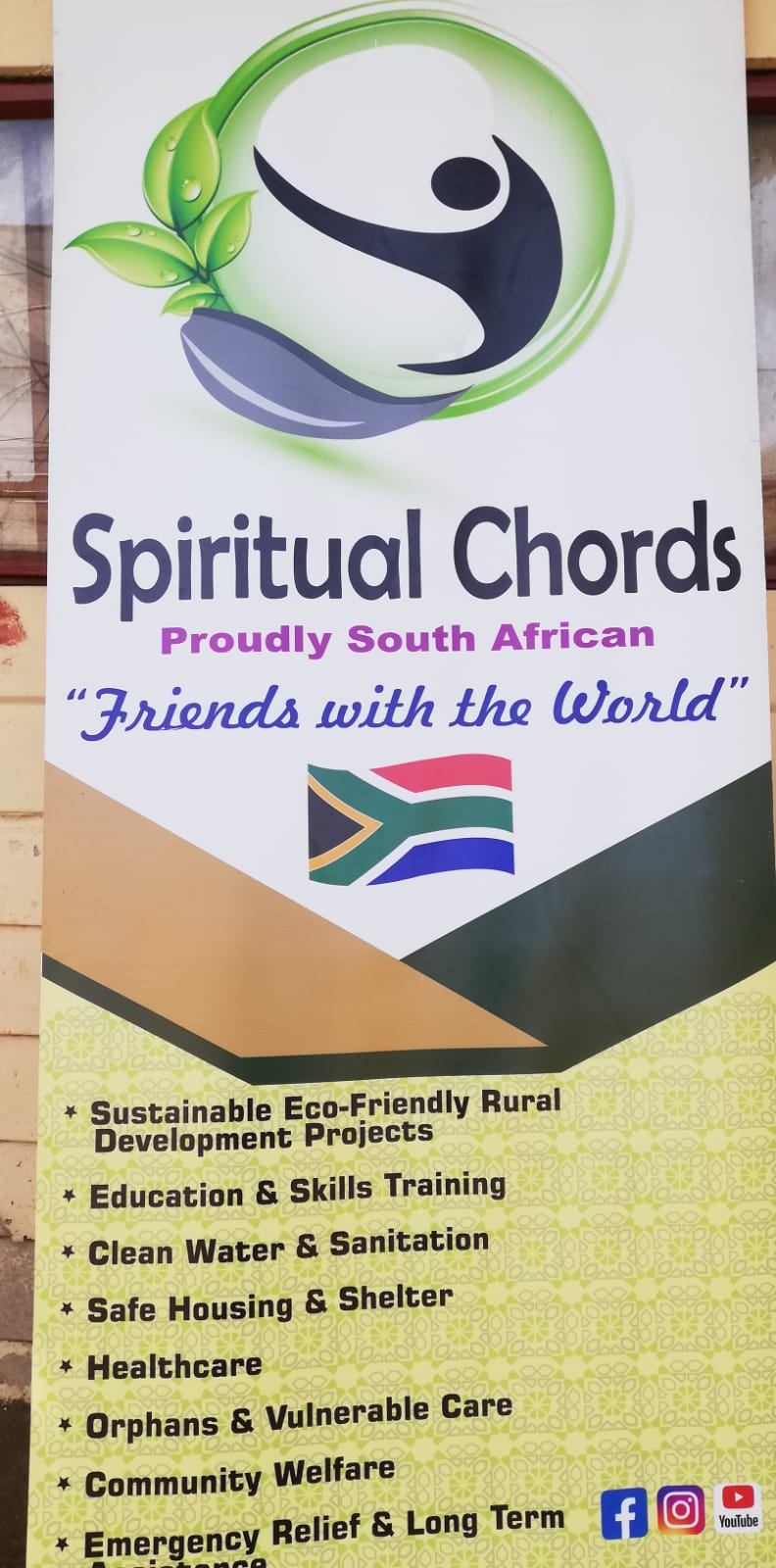Farming or growing plants might seem challenging to some, but many people, like our parents and grandparents, have successfully cultivated small vegetable gardens at home. These home gardens not only provide fresh produce but also offer a sense of fulfillment and connection to nature. With the right knowledge, patience, and care, anyone can grow their own vegetables and reap the benefits of home gardening.
The Spiritual Chords Foundation has played a pivotal role in supporting individuals and families who struggled during the Covid-19 pandemic. By promoting and supporting home gardening initiatives, they empowered many to grow their own food, providing a crucial source of nourishment and income during tough times. This initiative helped alleviate food insecurity and fostered a sense of self-sufficiency and community resilience.
Spiritual Chords' outstanding initiative in Lenasia, a small town in the south of Johannesburg, has become a beacon of hope. The JOCOD School on Peshawar Street, Ext 11, Lenasia, hosts the Spiritual Chords Sustainable Agriculture Project, which was launched in 2020 in response to the dire need for food security during the pandemic.
The decision to establish the farm came from Safeeyah Moosa, the founder and director of Spiritual Chords. Her vision wasn’t just about planting seeds—it was about sowing hope in a time of despair. As families struggled to put food on the table, Spiritual Chords saw the urgent need for a sustainable solution that would foster food security, promote self-reliance, and restore dignity.
“The initiative goes beyond immediate hunger relief. It aims to create a long-term strategy that addresses food sovereignty and counters the helplessness created by poverty. Through skills development, entrepreneurship opportunities, and a focus on environmental care, the project is paving the way for a self-sufficient and eco-conscious community,” said Moosa.
The benefits of the farm are multi-dimensional. Community members gain essential skills that empower them to uplift themselves and their families. As workers are trained in sustainable agricultural practices, they not only contribute to food production but also rediscover hope and motivation.
“One of the most significant impacts is food security. The farm supplies fresh, healthy, organic vegetables at affordable prices, improving nutrition within the community. Additionally, the project offers agricultural training to people of all backgrounds, including disabled adults and school children. This helps instill an understanding of their role in building a sustainable future,” Moosa explained.
Moosa emphasized that agriculture is a powerful tool for job creation, especially in areas with high unemployment. The skills acquired on the farm open doors to employment opportunities not just within the project, but also within the wider agricultural sector. By teaching people how to cultivate crops, manage farm activities, and operate small agricultural businesses, the initiative fosters a sense of responsibility and provides long-term career prospects.
The focus of Spiritual Chords is on cultivating staple vegetables such as spinach, cabbage, carrots, peas, cilantro, herbs like lavender and rosemary, as well as potatoes and citrus trees. This variety meets local dietary needs while creating a nurturing working environment where individuals take pride in their work. As they learn to manage these crops, participants gain valuable knowledge in sustainable farming practices, fostering a connection to the land.
Moosa pointed out that farming isn’t just physical labor; it requires essential skills such as commitment, patience, and a nurturing attitude. A desire for sustainable solutions is key, as well as an understanding that the earth must thrive for future generations. Farming also teaches resilience, teamwork, and problem-solving—skills that participants carry with them beyond the farm.
In conclusion, the Sustainable Agriculture Project in Lenasia, established by Spiritual Chords, stands as a testament to the resilience and creativity of communities facing challenges. By addressing immediate needs and creating lasting change, Spiritual Chords is nurturing not just plants but also people. As the initiative continues to grow, it serves as a model for sustainable solutions to hunger, poverty, and environmental care in Lenasia and beyond.
Through dedication, creativity, and collaboration, the project not only promises a brighter future for individuals but also contributes to the greater good of society and the planet.








No comments:
Post a Comment